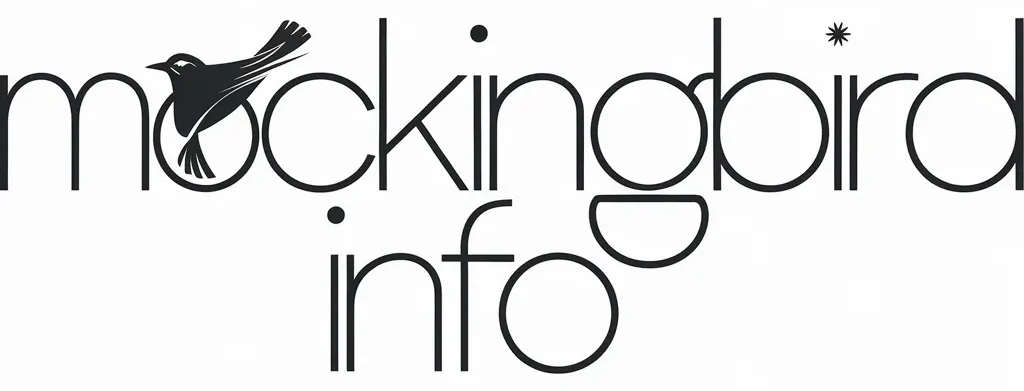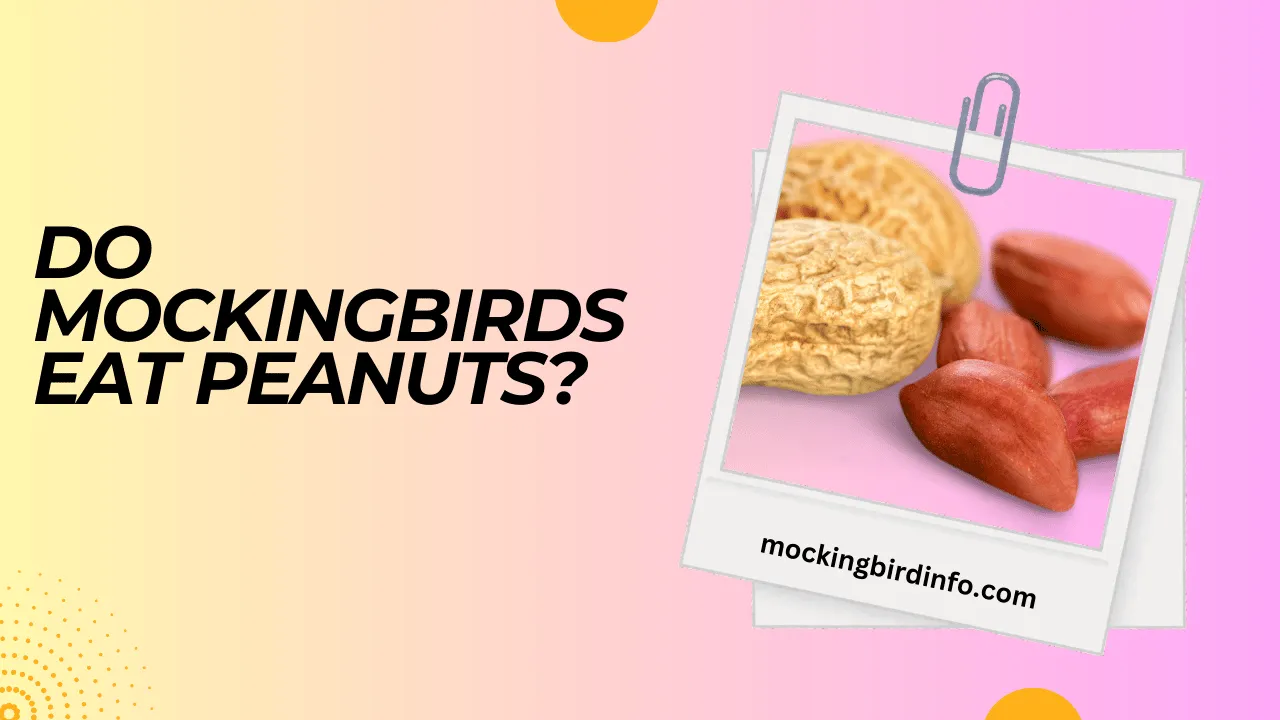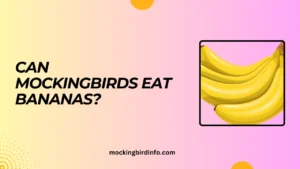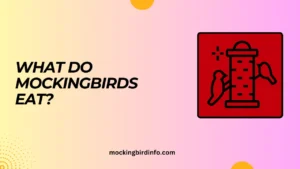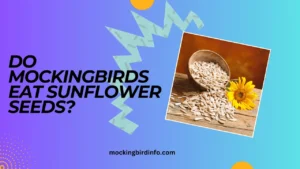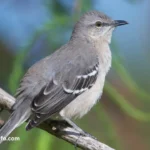Mockingbirds are known for their remarkable ability to mimic other birds’ songs, creating a symphony of sounds wherever they go. With their vibrant personalities and lively nature, it’s no surprise that these birds attract the attention of nature lovers.
As they hop around gardens and parks, many bird enthusiasts often wonder if mockingbirds enjoy the same foods as other backyard birds. Specifically, do mockingbirds eat peanuts?
Though they are omnivores with a diverse diet, peanuts aren’t a typical part of the mockingbird’s meal plan. While they might show curiosity around peanut feeders, these birds tend to prefer food sources that better suit their nutritional needs.
This article will explore the mockingbird’s diet, why peanuts might not be a good choice, and offer alternatives to keep them healthy and well-fed. By understanding their natural feeding habits, we can help foster an environment where mockingbirds thrive without causing harm.
Throughout this blog, we’ll examine the food preferences of mockingbirds, the potential drawbacks of feeding them peanuts, and suggest better food alternatives. Whether you’re a seasoned birdwatcher or new to backyard birding, understanding the dietary needs of these clever birds can enhance your experience and ensure you’re providing the best care.
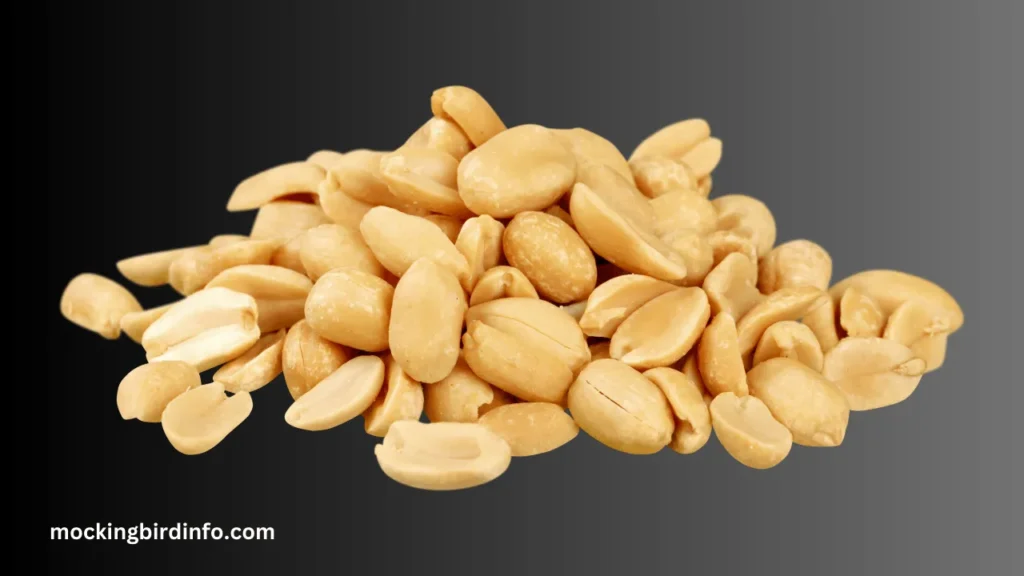
Contents
1. The Natural Diet of Mockingbirds
Mockingbirds are versatile eaters with an omnivorous diet. Their food choices primarily consist of insects, fruits, and seeds, which they forage from their environment. During breeding season, mockingbirds focus on insects, including caterpillars, grasshoppers, and beetles, which provide the protein necessary to nourish their chicks.
These insects are small and easy to catch, making them an ideal food source for both adult birds and their young. Fruits are another essential food group for mockingbirds. They enjoy a wide variety of fresh fruits, such as grapes, berries, and cherries.
These foods offer valuable vitamins, hydration, and sugars that provide energy. In addition, fruits like apples and pears contribute to a balanced diet, especially when fresh fruits are abundant during spring and summer.
Seeds from weeds and grasses also contribute to a mockingbird’s diet. Though they’re not the primary food source, seeds from grasses, plants, and flowers provide important carbohydrates and fats. Mockingbirds might pick at seeds found in bird-friendly plants or natural food sources, but insects and fruits tend to dominate their feeding habits.
2. Why Mockingbirds May Avoid Peanuts
Peanuts are a popular food for many backyard bird species, but mockingbirds typically don’t show the same enthusiasm for them. One reason is that peanuts are often too large and tough for mockingbirds to eat.
Unlike small, soft insects or the juicy fruits they prefer, peanuts can be difficult to break down, making them less appealing to these birds. The nutritional content of peanuts also doesn’t align well with the needs of mockingbirds.
Peanuts are high in fats, which are necessary in moderation, but they don’t provide the balance of protein, carbohydrates, and vitamins that mockingbirds get from insects and fruits. Birds that rely heavily on peanuts might gain excessive fat, potentially leading to health issues such as obesity.
In addition to the size and nutrition, peanuts can pose a health risk to mockingbirds. Salted peanuts can cause dehydration and other serious health issues. Peanuts that are not stored properly might also develop mold, which can be toxic to birds and cause long-term health problems.
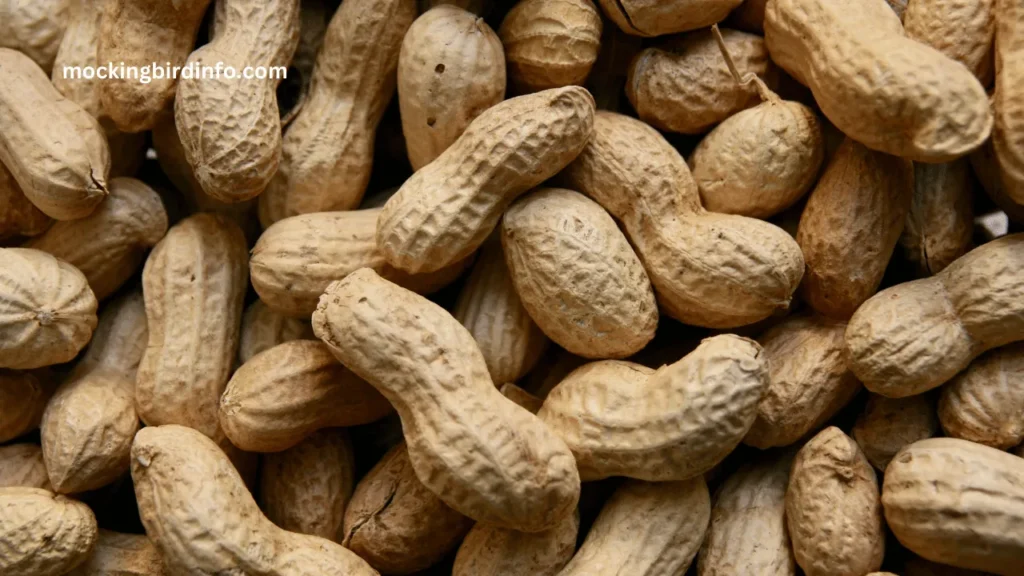
3. Potential Risks of Feeding Mockingbirds Peanuts
Feeding peanuts to mockingbirds, especially salted or processed varieties, presents several health risks. One of the biggest concerns is the potential for choking. Mockingbirds have small beaks, and a whole peanut is not an easy food item for them to consume.
A large peanut could become lodged in their throat, causing choking, which can lead to serious injury or death. Another major concern is the salt content of many peanuts sold for bird feeding. Salted peanuts, which are often used in birdseed mixes, can cause dehydration in birds.
Excess salt can accumulate in a bird’s body, leading to kidney issues and a range of other health complications. Since mockingbirds are not naturally adapted to handle the high salt content in peanuts, it can be particularly harmful to them.
Additionally, moldy peanuts present a dangerous risk. When peanuts are stored improperly, they can develop aflatoxins, a type of mold that is toxic to birds. Consuming moldy peanuts can lead to liver damage, weakened immune systems, and even death.
To protect mockingbirds, it’s best to avoid feeding peanuts altogether, especially if they’ve been sitting in feeders for a while.
4. Alternative Foods for Mockingbirds
Instead of peanuts, there are many healthy alternatives that you can offer to attract mockingbirds to your yard. First, insects like mealworms, crickets, and caterpillars are excellent sources of protein.
Mockingbirds are especially fond of these during breeding season when they need to nourish their young. Providing insects can attract mockingbirds to your yard and provide them with a more natural food source that supports their health and well-being.
Fruits are another excellent choice. Offering fresh grapes, blueberries, blackberries, and apples provides the mockingbirds with essential vitamins, sugars, and hydration. Fruits are an easy and enjoyable food source for mockingbirds, especially when they are in season. Just ensure that the fruits you offer are fresh and free from pesticides or chemicals.
Finally, providing birdseed blends that contain smaller seeds like sunflower seeds, millet, and safflower can also attract mockingbirds. You can find seed blends that include insects or mealworms, which are ideal for mimicking the birds’ natural diet.
Be sure to choose birdseed blends that are specifically designed for songbirds or omnivorous birds, as they tend to be more suitable for mockingbirds.
5. The Impact of Human-Provided Food on Mockingbirds
While feeding birds can be a delightful way to support wildlife, it’s important to be mindful of the potential negative effects. One concern is dependency. Overreliance on human-provided food can make birds lose their foraging skills, and if the food source runs out or is unavailable, the birds may struggle to find natural food.
It’s best to offer food intermittently and not as a substitute for wild foraging. Feeding birds can also lead to habitat degradation. Natural habitats provide birds with a more diverse range of food options, from insects to berries.
By continually feeding birds at feeders, they may begin to rely too heavily on this artificial food source, reducing their motivation to seek food in the wild. To support healthy bird populations, it’s important to preserve natural habitats and avoid disrupting their ecosystem.
Furthermore, disease transmission is another concern. When multiple birds congregate at feeders, especially during winter months when food sources are scarce, they are more likely to transmit diseases. Keeping your bird feeders clean and only offering fresh, nutritious food can help reduce the risk of disease spreading among local bird populations.
Conclusion
In conclusion, although mockingbirds are omnivorous and have a broad diet, peanuts are generally not an ideal food source for these birds. The texture, nutritional profile, and potential health risks make peanuts less suitable for mockingbirds compared to other food options.
Instead, offering foods like insects, fresh fruits, and appropriate birdseed blends provides mockingbirds with the nutrition they need to thrive. By making mindful food choices and promoting natural foraging, we can ensure that mockingbirds remain healthy and continue to contribute to the natural beauty around us.
Additionally, it’s important to consider the impact of feeding on their overall behavior and well-being. Supporting habitat conservation and maintaining a variety of food sources in the wild will help mockingbirds live vibrant, healthy lives.
Whether you’re a seasoned birdwatcher or new to backyard birding, understanding the right foods for mockingbirds will enrich your experience and benefit the birds you care for.
FAQs
1. Can mockingbirds eat peanuts?
Mockingbirds generally avoid peanuts, as their size and texture aren’t suited to their diet. They prefer smaller, softer food such as insects and fruits.
2. Are peanuts harmful to mockingbirds?
Yes, peanuts can be harmful, especially if they’re salted or moldy. Salted peanuts can lead to dehydration and kidney problems, while moldy peanuts can cause liver damage.
3. What foods do mockingbirds eat?
Mockingbirds eat a variety of foods, including insects, fruits (like berries, grapes, and apples), and seeds from plants and grasses.
4. Can I feed mockingbirds peanut butter?
While unsalted peanut butter might be safer than whole peanuts, it should only be given sparingly. Mockingbirds generally prefer insects and fruits over nut-based foods.
5. What is the best food to attract mockingbirds?
Offer mealworms, fresh fruits, and small birdseed blends to attract mockingbirds. They enjoy food that’s high in protein and vitamins.
6. How often should I feed mockingbirds?
Feeding should be done sparingly to prevent dependency on human-provided food. Offering food intermittently during colder months is a good practice.
